About the Conference
SWPS University’s Faculty of Humanities in Warsaw and the Board of the Polish Association of Modern Languages invite you to join the upcoming the scientific and educational conference, "Mediation and Mediation Activities in Communication in Foreign Languages." The conference will take place on September 15-17, 2025, at the campus.
The primary focus of this year’s conference is mediation, a topic that has gained increasing attention in various educational contexts in recent years. Given its growing significance in European language policy, mediation has become a subject of interest for both theoretical researchers and foreign language education specialists.
The first research on mediation in language teaching was conducted between 2000 and 2003 and primarily focused on cultural mediation. The findings from this research were incorporated into the Common European Framework of Reference for Languages (CEFR, 2003). The latest version of this document, the CEFR Companion Volume (2018), takes a broader approach to mediation, providing detailed descriptors for various areas aligned with language proficiency levels.
Mediation competencies are essential for communication across all areas of life—private and public, educational, and professional. In educational settings, these skills facilitate group collaboration, encourage critical thinking, and foster student autonomy. They are essential for negotiating meanings, resolving conflicts, and establishing common ground in multicultural and intercultural environments.
There is no doubt that mediation has become a crucial goal and process in language education. The new core curriculum for general education in Poland (2024) emphasizes the importance of engaging in mediation activities and developing skills in this area. Mediation-oriented exercises are included in school textbooks, and mediation skills are assessed during language exams, among other evaluations.
This year's conference aims to explore mediation from multiple perspectives, including its cultural, social, pedagogical, psychological, and legal aspects.
Plenary Speakers
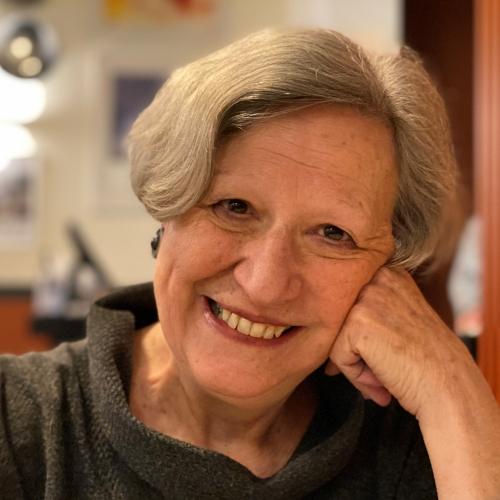
Professor Emerita
Bessie Dendrinos
Bessie Dendrinos is Professor Emerita at the National and Kapodistrian University of Athens (NKUA), Director of the Research Centre for Language Teaching and Assessment (RCeL), and Head of the Scientific Committee of the Centre of Excellence for Multilingualism and Language Policy (CEM) at NKUA. Since 2003, she has served as President of the Examination Board for the Greek national foreign language examination suite (KPG). She is also President of the European Civil Society Platform for Multilingualism (ECSPM) and founder of CURUM. Her research interests include foreign language education, curriculum and materials development, plurilingual pedagogies, intra- and cross-linguistic mediation, and language testing and assessment. Her book,
The Hegemony of English (Routledge, 2004), co-authored with D. Macedo and P. Gounari, won the 2004 American Educational Studies Association Critics’ Choice Award and has been translated into several languages. Her recent publications include
Mediation as Negotiation of Meanings, Plurilingualism and Language Education (Routledge, 2024) and “Collaborative Peer Learning Mediation Across the Curriculum,” forthcoming in
Numero Speciale di Lingua e Nuova Didattica: L’insegnante di lingue: formazione, azione, cognizione.
Read the full bio
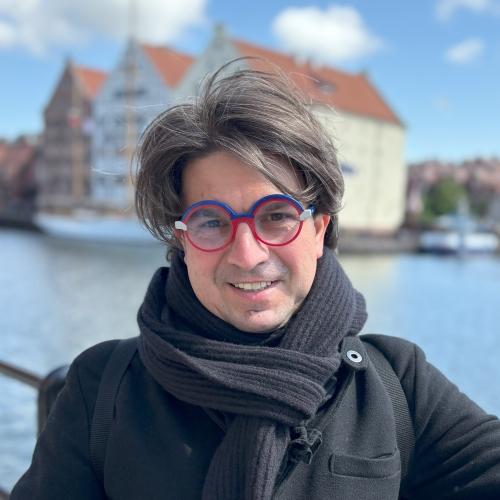
dr hab. prof. UW
Radosław Kucharczyk
Radosław Kucharczyk is a Professor at the Institute of Romance Studies and a faculty member in the Department of Didactics and Methodology of French Language at the University of Warsaw, where he graduated from the Institute of French Studies. He teaches courses in glottodidactics and practical French language courses. His research is focused on implementing European language policy within the Polish educational system. His interests include multilingualism, multilingual competence, and mediation. He has authored numerous articles on foreign language teaching didactics, the French language core curriculum for upper secondary schools, and didactic materials for learning French. Professor Kucharczyk cooperates with the Polish Central Examination Board (CKE). He is the Chair of the Coordinating Council for Foreign Language Teaching and Language Proficiency Certification at the University of Warsaw. From 2017 to 2025, he headed the Department of Didactics of French Language at the Institute of French Studies at the University of Warsaw. He is also an expert reviewer of French language textbooks for the Ministry of National Education and teaches French at one of Warsaw’s secondary schools, which offers bilingual classes.
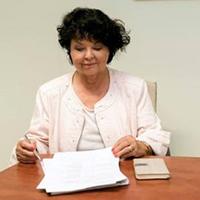
Professor
Barbara Lewandowska-Tomaszczyk
Barbara Lewandowska-Tomaszczyk is a Professor in the Department of Language and Communication at the University of Applied Sciences in Konin. Previously, she worked at the Institute of English Studies at the University of Łódź. Her research focuses on cognitive semantics and pragmatics, corpus linguistics and its applications in contrastive linguistics, applied linguistics, and translation studies. She has authored numerous publications, participated in many international research projects, and regularly delivers invited talks, seminars, and lecture series in Poland and abroad.
Visit Professor Lewandowska-Tomaszczyk's Google Scholar profile
Conference Program
Download the program (in Polish)
Plenary Round Table
A plenary round table on the role of mediation in contemporary language education will take place on September 17,2025.
Chair
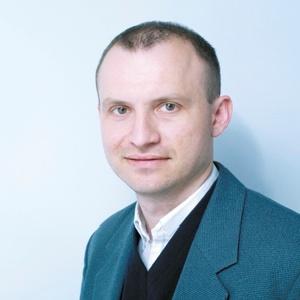
Jarosław Krajka
Ph.D. / Associate Professor
Jarosław Krajka is an Associate Professor in the Department of Applied Linguistics and Vice-Dean for Education at the Faculty of of Languages, Literatures and Cultures, Maria Curie-Skłodowska University in Lublin. His research focuses on computer-assisted language learning, foreign language teacher education, language assessment from an intercultural perspective, and intercultural communication. His most recent publication is the monograph Language Assessment Across Cultures: From Intercultural Communicative Competence to Artificial Intelligence (Brill, 2025).
Panelists
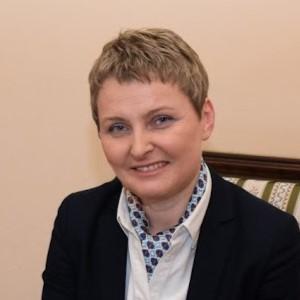
Iwona Janowska
Ph.D. / Associate Professor
Iwona Janowska is a Professor at the Institute of Polish as a Second Language at Jagiellonian University in Kraków. Her research focuses on general language education and teaching Polish as a foreign language. A central theme in her work is the implementation of the Common European Framework of Reference for Languages (CEFR/CEFR-CV) in educational practice, particularly in relation to action-oriented approaches and the development of mediation competences.
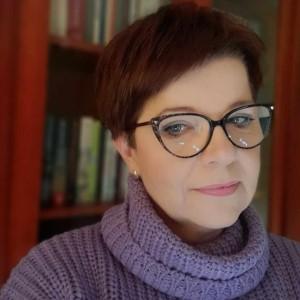
Mariola Jaworska
Ph.D. / Associate Professor
Mariola Jaworska is the Head of the Department of Applied Linguistics at the Institute of Linguistics, University of Warmia and Mazury in Olsztyn. She is a member of the board of the Polish Association of Modern Languages and the editor-in-chief of the journal Neofilolog. From 2012 to 2019, she served as the principal of the secondary school Zespół Szkół nr 3 im. Jana III Sobieskiego in Szczytno, Poland. She has authored scholarly publications in applied linguistics and language pedagogy, focusing on individual learner differences in foreign language learning and teaching, teacher training, and language education for students with special educational needs.
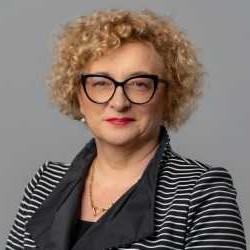
Urszula Paprocka-Piotrowska
Professor
Professor Urszula Paprocka-Piotrowska is the Head of the Department of Language Acquisition and Didactics at the Institute of Linguistics, Faculty of Humanities at John Paul II Catholic University of Lublin. She specializes in foreign language acquisition, language pedagogy, and cognitive linguistics. Her research explores first and second language acquisition in children and adults, the development of narrative competence, reformulation structures in language, and intercultural communication. Professor Paprocka-Piotrowska is the author and co-author of numerous scholarly publications. For many years, she has been dedicated to advancing the teaching of Polish as a foreign and second language. She promotes innovative approaches to individualizing learning experiences, including academic tutoring, and is a co-author of the handbook Tutoring for Beginners: Five Steps to Implementing Individualized Learning (KUL, 2023). Throughout her career, she has supervised more than 160 theses and doctoral dissertations. She also supports the development of teaching competencies among university faculty through individual consultations and training programs. Photo: T. Koryszko (John Paul II Catholic University of Lublin).
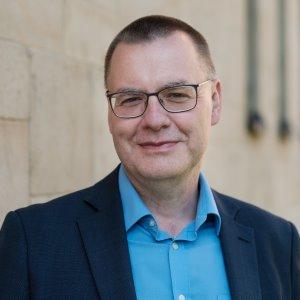
Mirosław Pawlak
Professor
Mirosław Pawlak is a Professor at the Faculty of Pedagogy and Fine Arts in Kalisz at Adam Mickiewicz University in Poznań and at the University of Applied Sciences in Konin. He has authored nearly 400 publications on various aspects of second language acquisition and teaching, including grammar instruction, error correction, and the role of individual learner differences. He is the editor-in-chief of the book series Second Language Learning and Teaching (Springer) and of the journal Studies in Second Language Learning and Teaching, one of the leading international journals in the field. He served as Rector of the University of Applied Sciences in Konin, President of the Polish Association of Modern Languages, and Chair of the International Federation of Language Teacher Associations (FIPLV).
Additional Events
Guided Tour – Around SWPS University
On the second day of the conference, September 16, we invite participants to take part in a guided walking tour of Warsaw’s Praga district (an additional fee applies). This tour will showcase the Kamionek neighborhood, home to SWPS University. Once a bustling industrial hub during the interwar period and under communist rule, Kamionek was recently dubbed the “Silicon Valley of the Second Polish Republic.” Today, many stunning former factory buildings, with their diverse architectural styles, still grace the area.
In addition to its historic tenement houses and post-industrial structures, Kamionek is adorned with vibrant murals and captivating street art. The route includes Poland’s first monument dedicated to an abstract idea, pre-war workers’ housing estates, city-run shelters for the homeless, and a new concert hall currently under construction on the grounds of the former Veterinary Institute.
Kamionek is not only an industrial heritage site—it is also the oldest inhabited part of present-day Warsaw, first mentioned in chronicles dating back to the early Piast dynasty. It is home to the city’s oldest cemetery and the co-cathedral of the Warszawa-Praga Diocese, which features remarkable examples of Polish decorative art from the pre-World War II period. The tour also includes the iconic Wedel chocolate factory and its museum.
Conference Venue
Faculty of Humanities in Warsaw, SWPS University, Chodakowska 19/31
Transportation and Parking
We encourage attendees to use public transportation.
From the city center / Warszawa Centralna railway station: Take tram no. 22 and get off at the Gocławska stop.
From the Praga district: Take tram no. 3, 6, or 26 and get off at the Gocławska stop.
SWPS University is located in a paid parking zone. A small paid parking lot is available on campus. Additional parking spaces can be found on Terespolska and Grochowska streets near the university.
Accomodation
We recommend accommodation at the following hotels: Tulip, Hit, Hetman, and Ibis Ostrobramska.
Organizers
Scientific Committee
- Professor Hanna Komorowska-Janowska
SWPS University
- Anna Jaroszewska, Ph.D. / A
Chair of PTN, University of Warsaw
- Professor Bessie Dendrinos
National and Kapodistrian University of Athens, ECSPM
- Mariola Jaworska, Ph.D. / Associate Professor
University of Warmia and Mazury in Olsztyn
- Ewa Andrzejewska, Ph.D.
University of Gdańsk
- Melanie Ellis, Ph.D. / Associate Professor
Silesian University of Technology
- Monika Janicka, Ph.D.
Maria Curie-Skłodowska University in Lublin
- Jarosław Krajka, Ph.D. / Associate Professor
Maria Curie-Skłodowska University in Lublin
- Radosław Kucharczyk, Ph.D. / Associate Professor
University of Warsaw
- Agata Lewandowska, Ph.D.
Adam Mickiewicz University
- Magdalena Makowska, Ph.D.
Adam Mickiewicz University
- Katarzyna Posiadała, Ph.D.
University of Warsaw
- Joanna Rokita-Jaśkow, Ph.D. / Associate Professor
University of the National Education Commission, Krakow
- Anna Seretny, Ph.D. / Associate Professor
Jagiellonian University in Kraków
- Magdalena Sowa, Ph.D. / Associate Professor
Maria Curie-Skłodowska University in Lublin
- Dorota Werbińska, Ph.D. / Associate Professor
Pomeranian University in Słupsk
Organizing Committee
- Magdalena Domeradzka, Ph.D. / Assistant Professor
- Agnieszka Gadomska, Ph.D. / Assistant Professor
- Małgorzata Kłos, Ph.D. / Assistant Professor
- Aleksandra Kostecka-Szewc, Ph.D. / Assistant Professor
- Sylvia Maciaszczyk, Ph.D. / Assistant Professor
- Emma Oki, Ph.D. / Assistant Professor
- Beata Sikorzak
Contact
If you have any questions, please contact us by email: This email address is being protected from spambots. You need JavaScript enabled to view it.